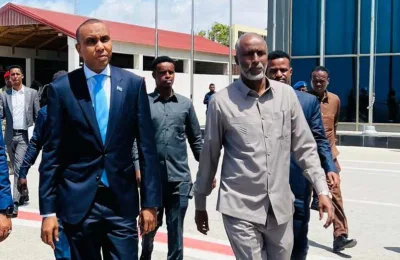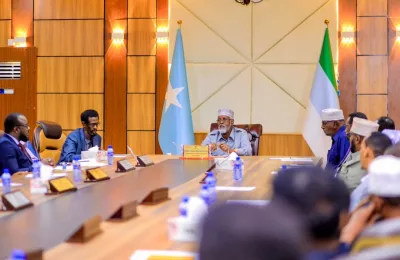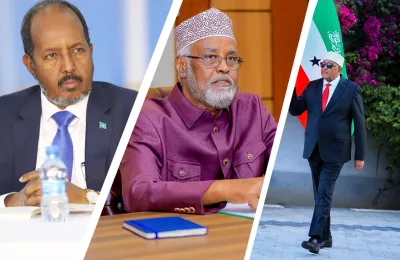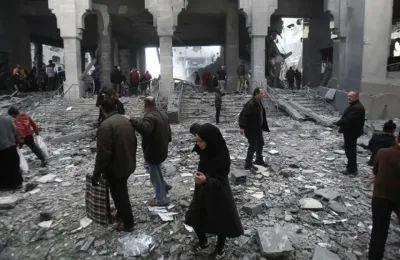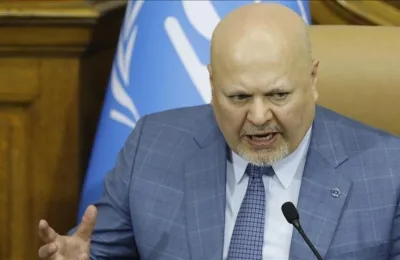Most of the major contracts signed by Somalia’s government in the past two years were not…
 Most of the major contracts signed by Somalia’s government in the past two years were not tendered competitively and should be renegotiated or scrapped, according to a confidential report by a donor-backed committee that reviewed the deals.
Most of the major contracts signed by Somalia’s government in the past two years were not tendered competitively and should be renegotiated or scrapped, according to a confidential report by a donor-backed committee that reviewed the deals.
Somalia has awarded foreign firms management contracts ranging from port and airport operations to fishing rights, but donors have voiced frustration at the handling of public funds, prompting the creation of a committee to analyse the deals.
The Finance Governance Committee (FGC) report, dated January 2015 and obtained by Reuters, said the FGC had completed a review of nine of the 11 contracts.
“None of the 11 contracts were tendered competitively, nor do they respond to any pre-defined terms of reference or scope of services,” the FGC report said.
The FGC, set up after donors criticised the government over management of public funds, has six members, three picked by the World Bank, International Monetary Fund and the African Development Bank and three chosen by the government.
It said advice offered to the government in “confidential assessments ranges from recommending the federal government negotiate an improvement in terms, to proposing the cancellation of those contracts that are of dubious benefit to the country.”
Somalia is recovering from more than two decades of war and relies on Western and other donor funding to keep it afloat. Its security also depends heavily on a 22,000-strong African Union peacekeeping force fighting Islamist militant group al Shabaab.
While the FGC findings will not surprise Western donors who acknowledge Somalia lacks institutional capacity to engage in complex contract negotiations, it will reinforce concerns about poor transparency and worries that vested interests trump national priorities in President Hassan Sheikh Mohamud’s government.
RECOMMENDATIONS
The government said the FGC findings were welcome and Mogadishu would act on recommendations. “It’s in the interests of the Somali people to do these kinds of amendments,” Abdullahi Mohamed Noor, state minister for finance, told Reuters.
One contract previously reviewed by the FGC, but not one of the 11, has already been scrapped. It had been awarded to U.S. law firm Shulman Rogers to recover Somali state assets that were frozen after war erupted in 1991.
The committee recommended scrapping a deal with AMO Shipping Company Ltd, signed on July 29, 2013, to supply six patrol boats for 132 million euros ($150 million). The FGC said it was too expensive for a government with a 2015 budget of $216 million.
AMO could not be reached for comment.
The FGC criticised a contract signed on July 25, 2013 with Somalia FishGuard Ltd, a Mauritius-registered company run by former British soldiers. It gave the firm responsibility for selling fishing licences and conserving fisheries resources.
It said such responsibilities should be separated to ensure there was no “conflict of interest”.
Simon Falkner, Fishguard’s chief executive, told Reuters the company was in talks with the new minister of fisheries and wanted to engage others with “expertise in conservancy so that the licensing regime sustains fish stocks”.
The FGC also suggested the government renegotiate contracts with Turkish firms which now run Mogadishu’s port and airport, the government’s main sources of revenues.
On the deal with port operator Albayrak Turizm Insaat Ticaret, the committee called for “an amicable renegotiation of the contract’s more troubling clauses” related to how revenue would be divided between the government and Albayrak. It said the government had already raised the issue of amendments.
The FGC also called for amendments to the airport contract signed with Turkey’s Favori LLC on June 30, 2013, saying it lacked precision and was vague about Favori’s fee structure.
In a letter dated Oct. 20, 2014 to the FGC, seen by Reuters, former Somali Finance Minister Hussein Halane said the government and Favori had agreed to renegotiate.
Favori and Albayrak could not be reached for comment. In previous comments to Reuters, Albayrak said Turkish firms were committed to helping Somalia rebuild and develop.


